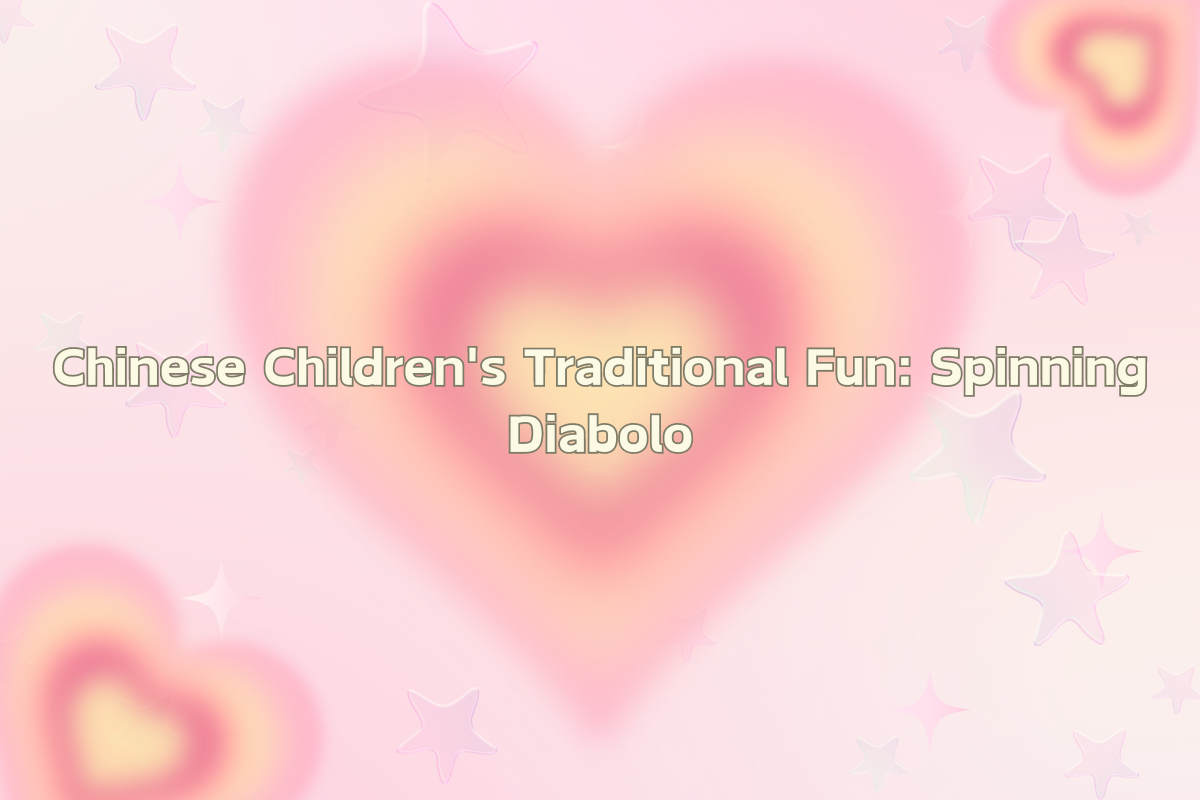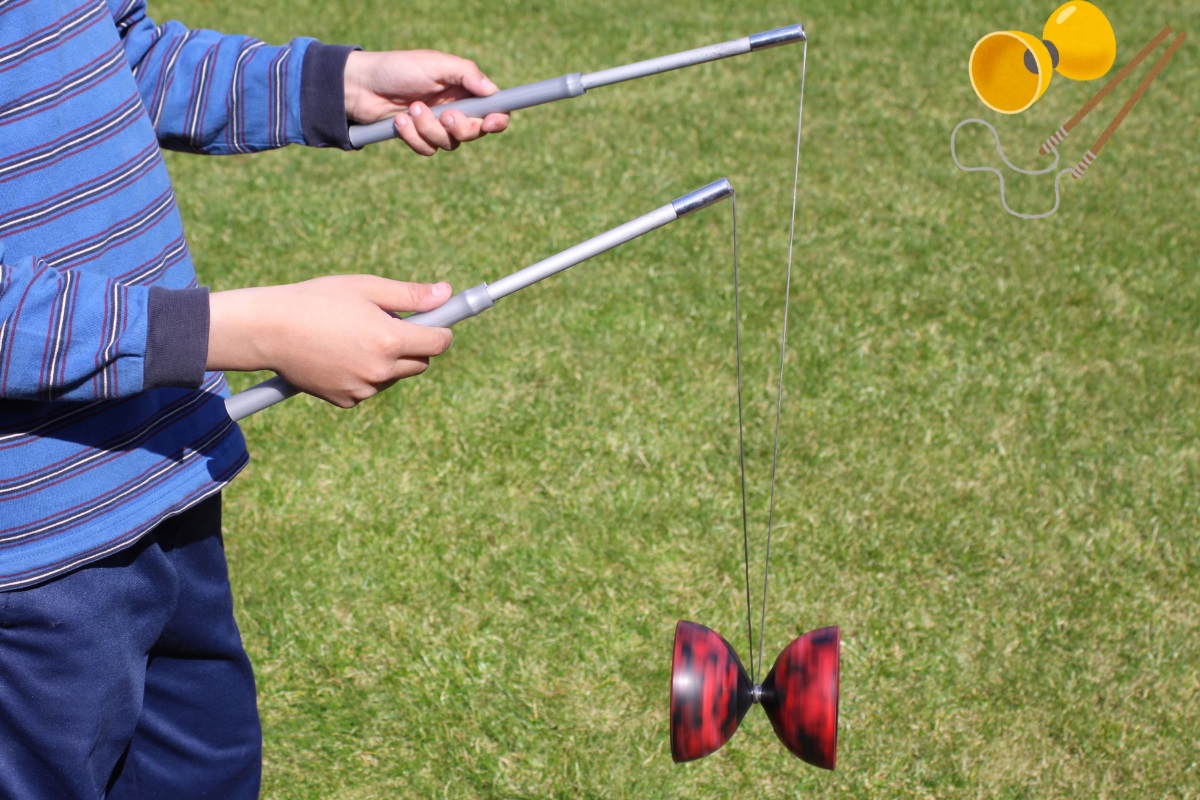Chinese Children's Game: Spinning Diabolo-dǒu kōng zhú
In the lively streets and bustling alleys of China, a traditional pastime brings joy and excitement to children of all ages – the art of spinning diabolo, also known as "抖空竹" (dǒu kōng zhú) in Chinese. In this blog post, we will delve into the captivating world of diabolo spinning and explore its rich cultural significance in the lives of Chinese children.

The History of Diabolo
The diabolo has a long and illustrious history in China, dating back over 2,000 years. Originally used as a tool for training soldiers, it eventually evolved into a beloved toy enjoyed by children across the country. With its simple yet elegant design, the diabolo has become an integral part of Chinese culture, cherished for its ability to inspire creativity and skillful mastery 精通 (jīng tōng).
精通 (jīng tōng), noun, mastery
Examples:
- His mastery of the piano is impressive.
他对钢琴的精通令人印象深刻。
Tā duì gāngqín de jīngtōng lìng rén yìnxiàng shēnkè. - Practice is the key to mastery.
练习是精通的关键。
Liànxí shì jīngtōng de guānjiàn.

Mastering the Art of Diabolo
Spinning a diabolo requires dexterity, coordination, and practice. Chinese children can be seen honing their skills in parks, playgrounds, and open spaces, delighting in the rhythmic motion of the spinning diabolo as it dances through the air. From basic tricks like "overhand throws" to more advanced maneuvers such as "grinding" and "whip 鞭子 (biān zi) catches," mastering the art of diabolo spinning is both challenging and rewarding.
鞭子 (biān zi), noun, whip
Examples:
- He used a whip to control the horse.
他用鞭子控制马匹。
Tā yòng biānzi kòngzhì mǎpǐ. - The cowboy cracked his whip loudly.
牛仔大声抽打鞭子。
Niúzǎi dàshēng chōudǎ biānzi.
Cultural Significance
Beyond its entertainment value, the diabolo holds deep cultural significance in China. It symbolizes resilience, perseverance, and the spirit of playfulness. Through the diabolo, children learn important life lessons about patience, determination, and the joy of accomplishment. It also serves as a means of cultural preservation, passing down ancient traditions from one generation to the next.
Key Sentences:
- I like spinning diabolo in the park.
我喜欢在公园里抖空竹。
Wǒ xǐhuān zài gōngyuán lǐ dǒu kōngzhú. - His diabolo spinning skills are very impressive.
他的抖空竹技巧很厉害。
Tā de dǒu kōngzhú jìqiǎo hěn lìhài. - Let's practice spinning diabolo together.
我们一起练习抖空竹吧。
Wǒmen yīqǐ liànxí dǒu kōngzhú ba.
Related Articles
- Chinese Children's Game: Jumping Rubber Band-tiào pí jīn
- Chinese Children's Game:Yo-Yo-liū liū qiú
- Chinese children's game: Rolling Hoops-gǔn tiě huán
- Chinese children's game: Handkerchief Tossing Game-diū shǒu juàn
- Chinese children's game: Eagle catching chicks-lǎo yīnɡ zhuō xiǎo jī
- Chinese children's game: Hacky Sack-tī jiàn zi